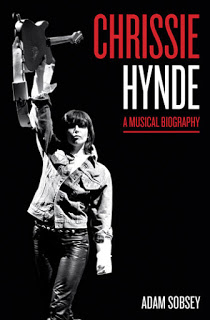
I searched for the television show Eligible Dentist online and got exactly one result, from IMDB: “A failed TV pilot about a recently widowed dentist who must take care of his three kids (1993).” If you don’t click further, the cast list goes like this: “Dylan Baker, Jill Clayburgh, Francis Dumaurier (See full cast & crew).”
Eligible Dentist — surely one of the worst-named TV shows of all time — was actually a sitcom vehicle for Gene Wilder, who passed away late last month. I was a Production Assistant on the show, which never aired. It was my first job out of college, and I got it because as an undergraduate I was a friend of the stepdaughter of the show’s Executive Producer, David Seltzer. Seltzer wrote (or perhaps rewrote), uncredited, the screenplay for Willy Wonka and the Chocolate Factory (1971), and he and Wilder had been close ever since.
Seltzer is probably best known for writing the horror movie The Omen (1976). When I asked Seltzer, after he hired me, how he had gone from the wacky Willy Wonka to the satanic Damien, I recall him answering, “The head of my studio said to me, You know The Exorcist? I said, Of course. He said, Write me one of those.”
In order to get the job, I called Seltzer every week for a month, as instructed by his stepdaughter. David’s busy, she said. Keep calling. Seltzer was busy because, unbeknownst to me, Eligible Dentist had in fact already shot its “failed TV pilot” before I was hired. The pilot, and the show it introduced, was evidently a whimsical semi-fantasia — naturally befitting Wilder’s presence and career, of course — in which Wilder’s character, a recent widower, was “living a double life,” according to Seltzer in a recent interview (conducted, as it happens, by a college classmate who once acted in a play of mine). In the episodes, he would be followed around by and interact freely with his recently deceased, beloved wife as if she were still alive, while also conducting his daily orthodontic and personal business — including being pushed back into “dating” by his friends and colleagues. (I do not have a memory of the widower having three children to raise on his own, as IMDB’s description of Eligible Dentist has it.)
According to Seltzer, the premise for the show arose during a lunchtime conversation with Wilder, who told him offhandedly about a conversation he’d had the previous night, as he did on most nights, with “Gilda.” Gilda Radner, the wife with whom Wilder “shared a soul,” Seltzer said, had been dead for three years. It was Seltzer’s idea to make Wilder’s recurring paranormal experiences with her the conceit for a television show, which NBC Productions bought in 1992 or early 1993.
The pilot “was great,” Seltzer said; “Gene and I loved the tone.” It was shot in the spring of 1993. The NBC executives saw it, heard from Seltzer that the second episode “was going to be all in dance. Gene was a wonderful dancer,” Seltzer said. The legendary choreographer Twyla Tharp was to be involved. Probably quite alarmed, NBC scrapped not only the pilot but most of the fantasy and whimsy behind it. An actor or two was replaced (including Jane Adams, as I recall, who popped up playing drugged-up or spaced-out weirdos in later movies like Wonder Boys and Little Children). New scriptwriters were brought in. Seltzer, a movie man who had little or no television experience, was in the midst of regrouping when he hired me, and he was probably not in the greatest of moods about this regrouping since it of course involved not just new personnel but, more dismaying, a vitiation of his and Wilder’s original vision for the show.
Eligible Dentist was based at Kaufman Astoria Studios in Long Island City, Queens. For my new job, I had a reverse commute, taking the subway out of Manhattan in the morning and back in at the end of the day. For the first few weeks, in midsummer, there was almost nothing to do. The new crew was being arranged; things well over my head were being put in place. I went into Kaufman Astoria Studios in Queens at nine, hung around the office, and left at five. I was given easy, boring tasks by the Line Producer, who ate McDonald’s for lunch every single day but didn’t look unhealthy except that he had the hunched shoulders and froggish face of the perpetually put-upon, one of those constitutionally dour people who doesn’t need to be. But perhaps that’s what made him a good Line Producer: expecting things to go wrong, because they always did. Eligible Dentist went wrong. Eligible Dentist had already gone wrong before I got there, and it was doomed.
Continue reading Eligible Dentist: Gene Wilder and Grace →
 Enver Hoxha, Albania’s dictator from just after World War II until his death in 1985, was born in Gjirokastra. So was Ismail Kadare, Albania’s most famous writer—but to call him that is to undershoot by miles. To the rest of the world, Kadare is Albania’s only famous writer, although that doesn’t make him beyond compare. Think of someone like Mario Vargas Llosa, Peru’s only well-known literary export.
Enver Hoxha, Albania’s dictator from just after World War II until his death in 1985, was born in Gjirokastra. So was Ismail Kadare, Albania’s most famous writer—but to call him that is to undershoot by miles. To the rest of the world, Kadare is Albania’s only famous writer, although that doesn’t make him beyond compare. Think of someone like Mario Vargas Llosa, Peru’s only well-known literary export.
 In the afterword to Lolita, Nabokov enumerates some very minor details of the novel, a few of them just a sentence or even a mere word, that most readers will have probably not even noticed. He calls these “the nerves of the novel. These are the secret points, the subliminal coordinates by means of which the book is plotted.”
In the afterword to Lolita, Nabokov enumerates some very minor details of the novel, a few of them just a sentence or even a mere word, that most readers will have probably not even noticed. He calls these “the nerves of the novel. These are the secret points, the subliminal coordinates by means of which the book is plotted.”


